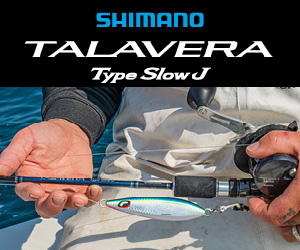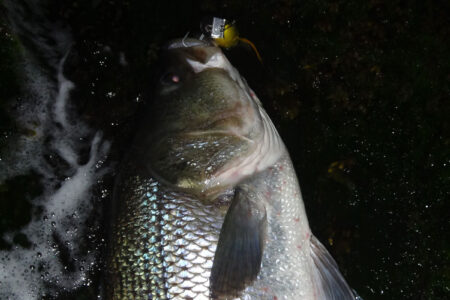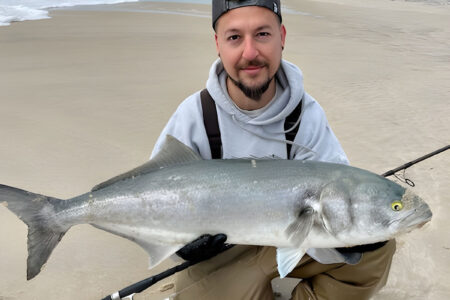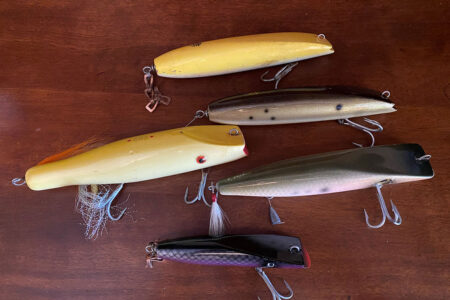
Are the strongest hooks always the best choice?
If you’ve been fishing for stripers for more than a season or two, I’m sure you’ve heard someone at some point say “fish the strongest hook you can find.” This is a well-known and often repeated phrase, particularly among surfcasters. While I technically agree with this simple statement, there is a lot more to it than it may seem upon first glance. Simply put, basing hook choice on strength alone leads to missed opportunities and lost fish. Instead, balancing strength, wire diameter, barb size, and overall weight are important for maximizing your lures effectiveness.
For example, there was a night in 2021 that I was fishing on sand beach in a hard sweep with jigheads and soft plastics. The wind was blowing at an angle, and try as I might, I could not keep a bow out of my line while also simultaneously effectively taking advantage of the structure. There were a ton of fish around, and I had no problem getting hits or momentarily hooking up with fish nearly every cast. However, for the first 30 minutes, I was having a hard (very frustrating) time staying buttoned to the fish. During this period, I was using a jig with a very heavy tinned hook, extremely strong, but also super thick with a large barb. On a whim, I decided to try out a jig that had a chemically sharpened hook that was much thinner with a far smaller barb. From the first cast, I realized the difference. While I still lost more than a few fish, my landing ratio went up substantially. The rest of the night was a resounding success, with dozens of slot fish, more than a dozen over slot, and several low 40-inchers.
The reason for my success on that night with the thinner hook was because it had so much more penetration power. The thinner gauge wire was able to get the hook beyond the barb with less force, which made up for the bow in my line (and hence my diminished ability to set the hook). Had I only had the thick tinned hook, I’m not sure I would have landed even a quarter of the fish I did. I simply backed off my drag a couple clicks, and was careful not to horse the fish through the breakers, and I never bent out a hook the entire tide.
But it’s not just the thickness of the gauge of the hook that is the issue. Importantly, I think the size of the barb on very heavy hooks is often overlooked. A large barb takes a ton of force to overcome, which I personally believe makes a bigger difference relatively to the thinner versus thicker wire. While I haven’t tested it scientifically, my back-yard experiments with a two-by-four and a hand scale suggest a thick, barbless tinned hook takes similar amount of force to drive home as a barbed chemically sharpened hook.
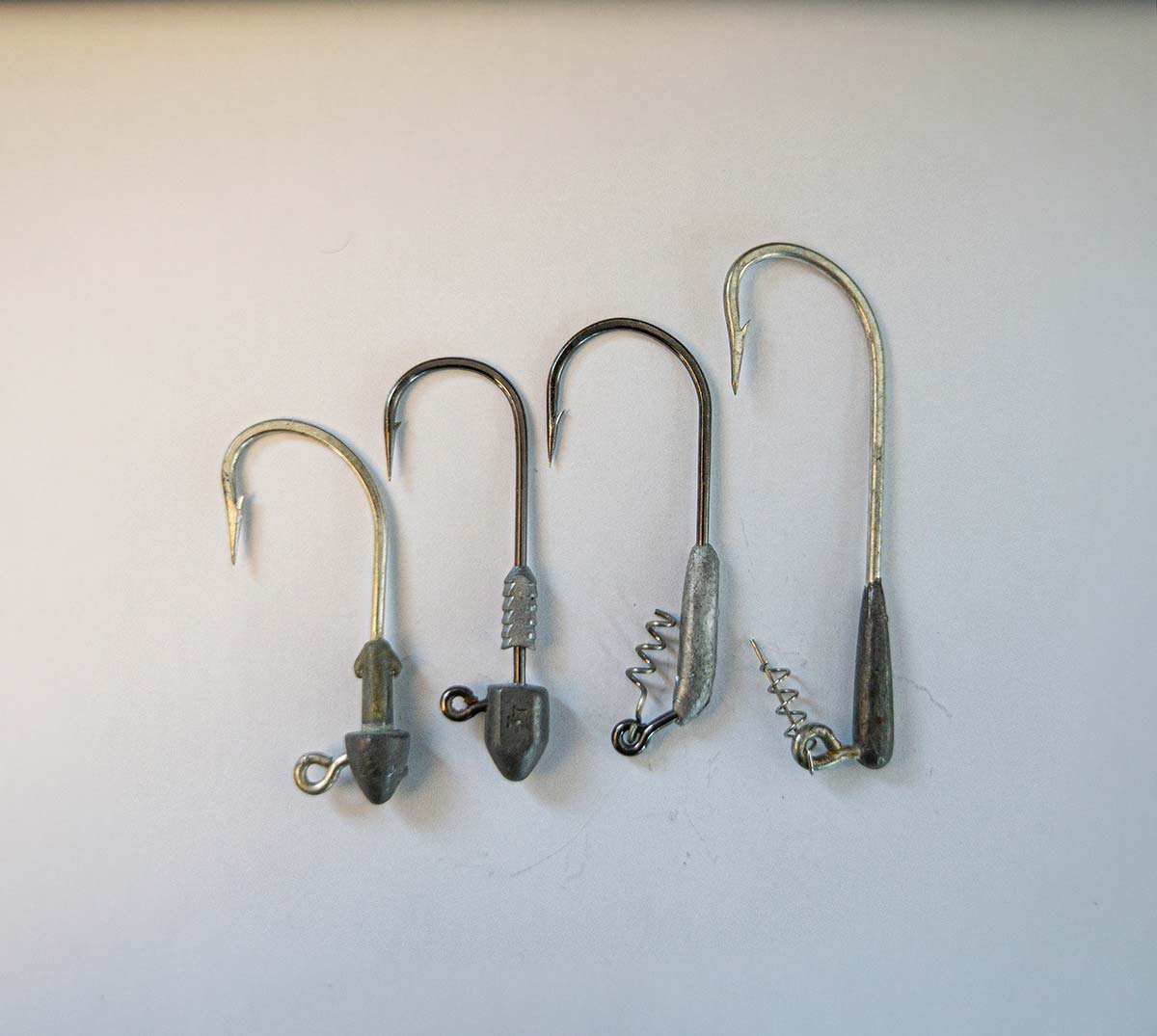
However, it isn’t just about hook-setting power. Weight can be a significant problem as well. I have written in The Fisherman about the various treble hooks I use on my lures, and have remarked that I really like the Mustad 9430 5x treble hook. However, this hook is not the best choice for many plugs because it’s so heavy. When compared to the very popular and commonly used VMC 9626 4x hook, the Mustad 9430 weight is different enough that it can substantially change the way a plug moves through the water.
For example, on the front of a plug like a darter, the difference in the hook weight can put the plug in an entirely different zone of the water column. On other plugs, like a plastic swimmer, it can reduce the action and make it far more subtle, or even ruin the action entirely. In order to offset this weight difference, you have to size-down the Mustad hook, which in turn makes all kinds of other problems – like not having enough gap between the tines to adequately hook into a large stripers thick, hard jaw. For this reason, while I still rely on the Mustad 9430 for many of my plugs – and think it’s a great hook – I use it judiciously only on plugs that can “handle” it.
Now, to be clear, I am not suggesting lightweight hooks are always the answer. They’re probably not even the answer the majority of the time; if anything, erring on the strong side is probably safest. And if you’re bucktailing an inlet or horsing fish out of a boulder field on a needlefish, then using a big, strong hook is going to be absolutely critical. Frankly, for this reason, I’m constantly trying to use the strongest hook I can in every situation. However, this doesn’t necessarily mean using the ultimate thickest, biggest, most unbendable option all the time; instead it’s about balancing strength, weight, and penetration power to come up with the right hook for the specific situation. Sometimes this is a chemically sharpened thin-wire hook, sometimes it’s an ultra-heavy old-school tinned hook, and sometimes it’s a carefully forged, hand ground beauty.
